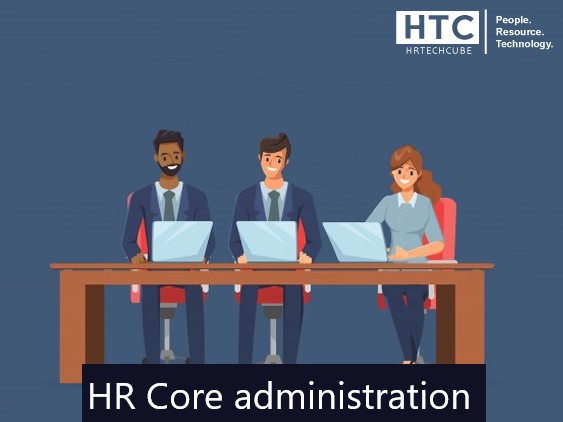HR Core Administration is fundamental in managing an organization’s workforce. It refers to the key HR tasks, such as employee data management, payroll processing, benefits administration, and ensuring compliance with legal and regulatory standards. A well-structured HR Core Administration system allows organizations to operate smoothly by automating and streamlining routine processes, ultimately driving efficiency, reducing errors, and boosting overall productivity.
Table of Contents
- Understanding HR Core Administration
- Key Components of HR Core Administration
- The Role of Technology in HR Core Administration
- Benefits of an Effective HR Core Administration System
- Challenges in Implementing HR Core Administration
- Conclusion
1. Understanding HR Core Administration
HR Core Administration involves the essential functions that make up an organization's human resource management system. This includes managing employee records, payroll, compliance with labor laws, and other fundamental HR tasks that ensure the smooth running of an organization's day-to-day operations. HR Core Administration not only improves operational efficiency but also helps in aligning the HR department's efforts with broader organizational goals.
2. Key Components of HR Core Administration
The primary functions of HR Core Administration include:
- Employee Data Management: Efficiently managing and organizing employee records, including personal details, work history, and roles within the company.
- Payroll and Compensation Management: Ensuring timely and accurate salary payments, tax deductions, and bonuses, in compliance with legal requirements.
- Benefits Administration: Administering employee benefits programs such as health insurance, retirement plans, and other perks.
- Compliance Management: Ensuring the company adheres to all labor laws, workplace safety regulations, and other relevant policies.
- Leave and Attendance Management: Tracking employee attendance, leaves, and absences to maintain smooth workflow management.
3. The Role of Technology in HR Core Administration
Technology plays a critical role in improving HR Core Administration. Traditional HR processes are often time-consuming and prone to errors. However, technology has revolutionized HR management by providing solutions that automate and streamline various processes. Some of the technological advancements include:
- Cloud-Based HR Systems: These systems allow easy access to HR data from any location, enabling HR teams to manage processes remotely and securely.
- HR Software and Automation Tools: These tools simplify tasks like payroll processing, benefits enrollment, and time-off tracking, reducing administrative burden.
- Self-Service Portals: Many modern HR systems offer self-service portals for employees, allowing them to view and update their personal information, access pay slips, and manage leave requests without HR intervention.
- Analytics and Reporting: Advanced HR software solutions provide powerful reporting tools that offer insights into employee performance, compensation trends, and more, aiding decision-making.
4. Benefits of an Effective HR Core Administration System
An efficient HR Core Administration system offers several key benefits to an organization:
- Improved Accuracy: Automating repetitive tasks reduces the likelihood of errors in payroll processing, data entry, and other critical functions.
- Time Efficiency: Automation of routine HR tasks frees up HR personnel to focus on more strategic initiatives, enhancing overall productivity.
- Cost Savings: Reducing manual intervention not only saves time but also reduces administrative costs associated with HR tasks.
- Better Compliance: HR systems can automatically update policies to comply with the latest regulations, helping organizations avoid penalties or legal issues.
- Employee Satisfaction: Streamlined HR processes contribute to faster response times and improved employee experience, leading to higher engagement and satisfaction.
5. Challenges in Implementing HR Core Administration
While the advantages are clear, implementing an efficient HR Core Administration system does come with challenges:
- Integration Issues: Integrating new HR systems with existing software and tools may cause compatibility issues and disrupt processes.
- Employee Training: New technologies and systems require adequate training for HR personnel and employees, which may require time and resources.
- Initial Costs: The cost of setting up HR technology solutions can be significant, especially for small and medium-sized businesses.
- Data Security: Ensuring the security and privacy of sensitive employee data is crucial, especially when transitioning to digital systems.
For More Info: https://hrtechcube.com/hr-core-administration/
Conclusion
HR Core Administration is the backbone of human resources management in any organization. By streamlining essential HR tasks and leveraging technology, businesses can increase operational efficiency, reduce errors, and improve overall employee satisfaction. Despite some implementation challenges, the long-term benefits of an effective HR administration system far outweigh the initial hurdles.




